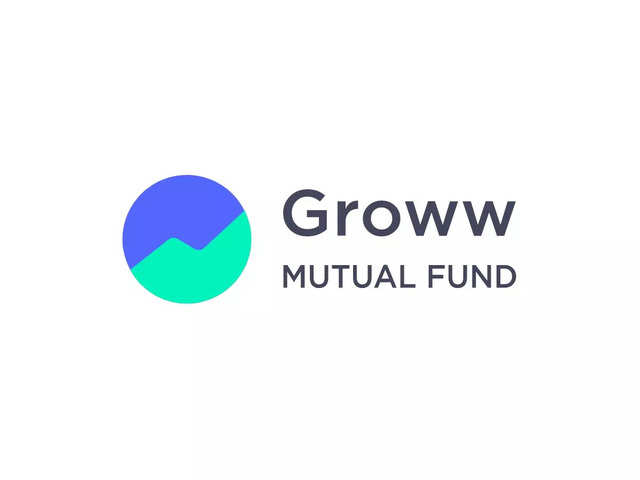
In a span of one year, Airtel Ads has delivered 8 billion plus impressions and generated ₹100 crore annualized revenue
Bharti Airtel’s Chief Product Officer shares how Indian advertising industry can minimise its rising ad frauds
Feb 25, 2021, 10:00 IST
ad-tech
How Airtel’s AdTech platform is planning to deliver on the promise of ‘zero ad frauds’ to its clients
Feb 25, 2021, 10:00 IST
Bharti Airtel’s Chief Product Officer shares how Indian advertising industry can minimise its rising ad frauds
- With Google, Apple and Firefox putting an end to third-party cookies, the future of the ad tech industry seems to be cookie-less.
- At the same time, with digital advertising seeing an astronomical demand after COVID, ad frauds in our country are also increasing.
- Airtel’s
new AdTech platform Airtel Ads is promising zero ad frauds to its clients. - We spoke to Adarsh Nair, Chief Product Officer,
Bharti Airtel to find out how it is going to deliver the promise of zeroad fraud to its clients, goals for this fiscal and focus areas for FY22.
In 2020, reduced marketing budgets led to lower fraud rates across all apps, improved preventive measures also contributed to a decline in mobile frauds. This year, according to App Flyer, frauds will remain a serious issue as the marketing budgets have started recovering. 20% of all mobile advertising spends in India are wasted on fraudulent impressions and clicks, revealed Mobile Marketing Association.
According to market research firm techARC and fraud detection and elimination platform mFilterIt, ad fraud in India will grow to an average of 45%-55% amidst the industry’s recovery from the Coronavirus pandemic. This new prediction is a stark rise from the country’s current ad fraud. Travel, entertainment, and finance were the most affected verticals and will remain most vulnerable to fraud this year.
However, Bharti Airtel’s new AdTech platform ‘Airtel Ads’ is promising zero ad fraud to its clients. According to Adarsh Nair, Chief Product Officer, Bharti Airtel, the first step of avoiding an ad fraud is honesty and transparency.
Telling us how the telco will deliver on the promise, Nair said, “If the marketers were a little more careful about where they invested their money, they could avoid ad fraud. But unfortunately, they also push to see impressions and results. And this is where that behaviour starts. However, inside Airtel, there cannot be ad fraud. It is a home-grown system, we are not allowing any of these technologies into our system. We are building everything from ground up. So there's no affiliate, no third-party, it is entirely monitored by us. So when an advertiser comes to us and says, I would like to interact with the youth, and they want to touch 1 million premium views, we will touch 1 million premium views. And if we cannot, we will tell the advertiser, sorry, I don't think we can get to 1 million but we can promise 5,00,000 instead. We're okay with that. This is why I am confident that inside the Airtel app, there cannot be ad fraud because we are not letting anybody from the outside into our system. It is a completely closed system in which our preferred brands can connect with other quality consumers.”
Future of AdTech and Airtel Ads
With a massive increase in mobile consumption and digital ad spends, cookies have become the oil that run the whole system. However, with Apple, Firefox’s Mozilla and Google blocking third-party cookies last year, the future seems to be cookie-less. Airtel, however, is not dependent on cookies at all, which Nair believes, makes its ad tech platform future-ready and error-proof.
“The minute cookies are removed, the entire way of advertising will change. And the good news is
Nair also told us that the future of AdTech will be to build for India, build for outcomes and build for trust.
Planning process of Airtel Ads
Airtel’s plan to launch an AdTech platform began two years ago, when Nair joined the company. He realised that the current AdTech ecosystem woos its clients with quantitative results in terms of clicks and actions but customers often don’t find the right brand of their choice and clients don’t find a long-term value from their deals. AdTech platforms also have limited access to digitally-savvy populace, leaving out a massive opportunity with the spenders in the hinterlands. So, Airtel found a perfect bridge in the market to help brands connect with its 320 million customers.
Nair said, “Airtel Ads breaks new ground in the USD 10 billion Indian advertising industry. By abstracting Airtel’s unique strengths of quality customers, best-in-class network and world-class digital platforms, Airtel Ads offers innovative channels for brands to reach the right audiences. What truly differentiates Airtel Ads is its razor-sharp focus on quality over quantity and real impact vs vanity metrics.”
Airtel Ads was launched as a beta test a few months before COVID and the platform has already worked with 100 clients across multiple categories – FMCG, BFSI, Digital Startups, etc. Early advertisers include PepsiCo, zomato, CRED, Tata AIG, Lenskart, Apollo 247, Cars24, Gameskraft, Vahan and Harley Davidson. It provides omni-channel access through its apps such as Wynk, Xstream, Thanks App and DTH TV ads.
In a span of one year, Airtel Ads has delivered 8 billion plus impressions and generated ₹100 crore annualized revenue.
On what helped a new platform achieve the Rs 100 crore milestone in a year, Nair answered with a word, ‘patience.’
“Sometimes, people are in a rush to achieve milestones. You think, 'Let's go make things happen'. But while we have a sense of urgency, we also have a lot of patience. For the first interaction, let’s say we get a budget of Rs 2 lakh only. We’ll happily accept that and draft them a plan. Next month, this amount goes up to Rs 5 lakh, it keeps increasing and soon we are sitting on a Rs 1 crore budget from that same client. So, this patience and focus on the right experience for the brand has been our biggest win. And we are seeing brands come in, trying something with us, liking us and slowly scaling. And this is what I call ‘product scale’, where we are not rushing anybody. We are letting the brands come in and take their time to grow with us,” elobarted Nair.
With the Indian advertising industry expected to grow to USD 19 billion by 2025 from the current USD 10 billion, Airtel App is eyeing to capture a meaningful share of the growing pie with its sharp focus on quality. Airtel Ads is also working to bring the offline space under its AdTech network to help its clients connect with non-digital savvy users.
It is also planning to adopt a pull strategy to attract more clients this year.
Sharing Airtel Ads’ goals for this fiscal, Nair said, “By the end of this year, I think we will easily cross into the 150 brands range, because we've got a month and a half left. We will probably be reaching out to another 50-60 brands, they'll all start from financing with us, so we'll probably cross 150. About the targets beyond that, we know the top 100 brands in India who spend most of their money, they are the ones we want to reach out to. For the remaining probably 2000-3000 brands, we will put out scalable solutions for which they can approach us. We don't have to wait for a salesperson to go to them, they can reach out to us, put a budget on the website and get started.”
Airtel Ads will also focus on scaling, offer creative solutions that can help its clients engage more with their targeted audience and improve app intelligence.
“We have an ambition to scale beyond the digital, get into the offline/retail side. So, we are constantly monitoring the supply increase. We're also very interested in creative ad solutions. I'll give you an example. Take for instance an online concert where 100,000 users are engaging with an artist. While the artist takes a break, can we create a digital game that all the online users can play, which is actually sponsored by let's say a Pepsi? It'd be a fantastic ad format, which creates engagement. People get to learn about a new company while engaging in the game. Creatives Ad will be a focus area within the supply. On the demand front, it is going to be a constant drumbeat. How do we access all the big advertisers and how do we make sure our solution is also available to the small and medium businesses. That journey will never stop. The rest of my time is spent deep on experience. How do we get the right data that we have today to make sure that we understand it better, so that we only connect the right product to the consumer who needs it? This is where a lot of our tech investments will go,” said Nair, signing off.
INSIDER INTELLIGENCE REPORTS







